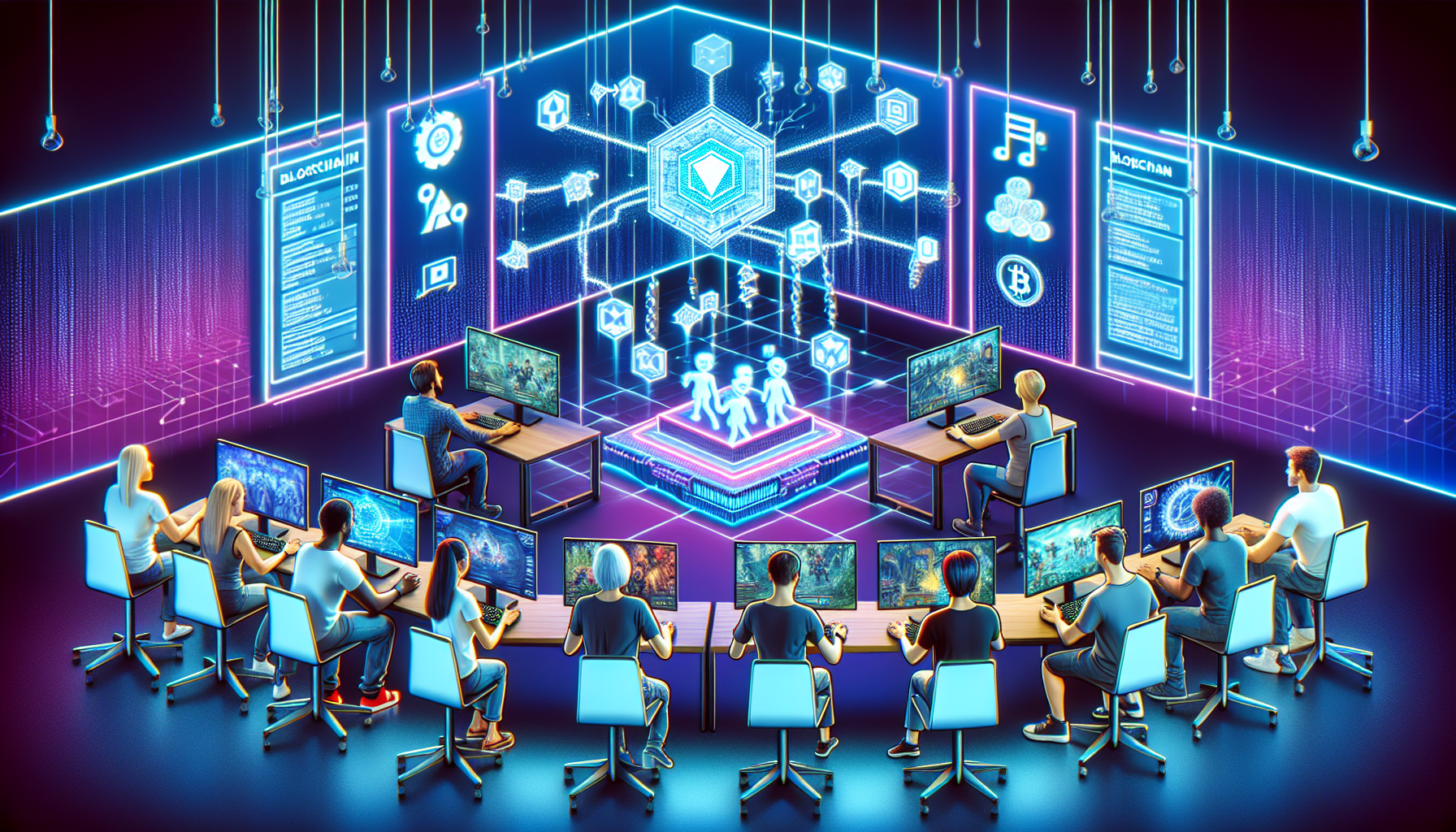/ Mar 04, 2026
Trending


The intersection of blockchain technology and gaming is not only reshaping the gaming industry but also accelerating the adoption of blockchain solutions. As more game developers and companies explore blockchain-based platforms, they are discovering innovative ways to engage users through unique experiences and digital assets.
Blockchain gaming utilizes decentralized technology to create immutable, transferable digital assets within virtual worlds. Non-fungible tokens (NFTs) are at the heart of this intersection, allowing gamers to own, trade, and monetize in-game items. Unlike traditional games, where assets remain under the control of the game developers, blockchain games offer true ownership, revolutionizing the way gamers interact with digital goods.
Non-fungible tokens provide a blockchain-based, verifiable digital ownership system that enhances the gaming experience. Players can collect rare items, trade them in marketplaces, or even loan them, offering new revenue streams. Episodes like the sale of a virtual ship for over $300,000 in the game Star Atlas illustrate the potential of tokenized digital assets in gaming.
The technological advancements in blockchain networks are supporting complex gaming ecosystems. Faster transaction speeds, lower costs, and enhanced interoperability are critical for maintaining seamless user experiences. Networks like Solana and Polygon are gaining popularity among developers for their ability to scale and integrate smoothly into numerous gaming apps.
Solana and Polygon are two blockchain networks making significant strides in the gaming sector. Solana’s capabilities allow massive multiplayer experiences without compromising on speed or security, offering developers a robust infrastructure for game creation. Polygon, on the other hand, focuses on providing cheaper and faster transactions, making it an attractive choice for developers looking to create cost-effective blockchain games.
Despite the promising growth, blockchain gaming faces challenges. Regulatory scrutiny, high development costs, and the volatile nature of cryptocurrencies can hinder mainstream adoption. However, these hurdles also present opportunities for innovation and collaboration with regulatory bodies, which can ultimately result in a more robust and sustainable ecosystem.
Regulations play a significant role in the expansion of blockchain technologies. Crypto game developers must navigate diverse regulations across different regions, focusing on consumer protection and financial compliance. Engaging with regulatory authorities and adopting transparent practices will be crucial in addressing concerns and fostering trust among stakeholders.
As blockchain technology becomes more deeply integrated into the fabric of the gaming industry, it opens up endless possibilities for both developers and gamers. With networks like Solana and Polygon leading the charge, the potential for innovation across the gaming landscape is immense. Whether through enhanced game mechanics, real-world utility of assets, or novel revenue models, blockchain is set to redefine how we perceive and interact with digital worlds.
Blockchain and gaming are a formidable combination, boosting each other towards a future filled with countless possibilities. As more resources and innovations are funneled into this intersection, the gaming world is likely to be the vanguard in the mass adoption of blockchain technology, fundamentally altering the ways digital interactions take shape.
Stay ahead with Blockchainooz! Get daily updates on industry insights, market trends, and innovative blockchain technology—all in one place. Perfect for enthusiasts and investors looking to make informed decisions in the ever-evolving world of blockchain and crypto.